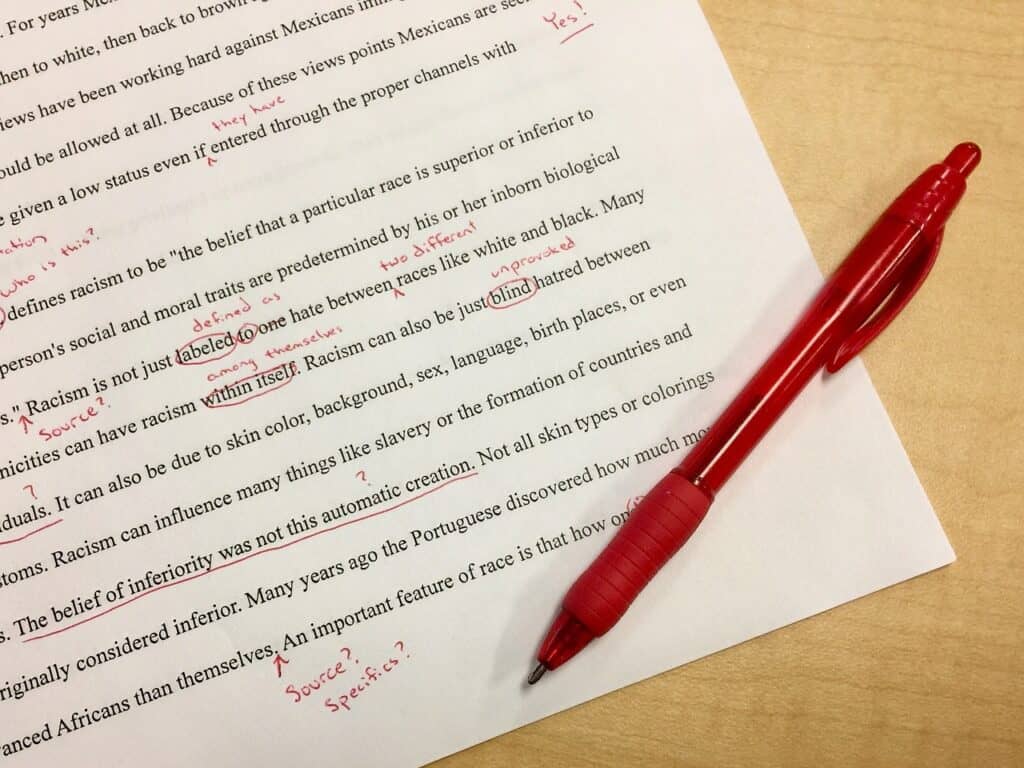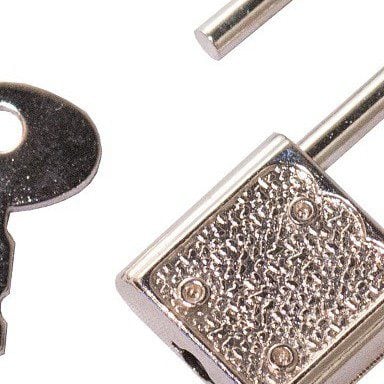Starting or moving to a new career can be both challenging and scary at the same time.
The excitement and anticipation of a new journey can soon turn to disappointment when you see the demand for book editors is dwindling, and what demand there is… well…the stats say are not very well paid.
So, Is book editing a dying career?
I don’t think so. Here are seven things you may not know about editors, including the demand for book editors. Let’s see where the demand is, and find out if book editing really is a dying career.
Editing books is a job that’s hard to come by. The number of publizied jobs is outpaced by the number of those interested in breaking into publishing, though that leaves opportunities for those seeking freelance work or who are interested in building their own freelance book editing businesses.
Google.

Disclosure:- This site has an affiliation with IAP Career College and should you purchase something from a link I may receive a small payment at no cost to you. I am not an employee of any company mentioned and all opinions expressed here are mine and are not representative of any company.
- 1. What is a Book Editor?
- 2. The Reason for Editing.
- 3. The Five Processes of Editing.
- 4. The Hierarchal Structure of Editing.
- 5. Let's talk about the Demand for Book Editors.
- 6. What Qualifications are Needed to Become a Book Editor
- 6. Why Authors need an Editor.
- 7. Will AI Replace Editors?
- Conclusion
1. What is a Book Editor?
“Invisible mending.” is how Chris Evans describes her work. “An editor,” she says, “is like a ghost, in that her handiwork should never be apparent” (“Ghosting and Co-Writing” in The Ultimate Writing Coach, 2010).

There are different variations of editors. You will be aware of the obvious ones, newspapers, books, videos, and magazines.
Essentially it is a process where a book will undergo a series of edits to have it adhere to a style guide to have it ready for publication.
The Chicago Manual of Style is the most popular style guide in the book publishing industry because its depth and versatility make it the most comprehensive option available for a variety of content, including business writing.
2. The Reason for Editing.
Book editing is more than just correcting grammar mistakes though.
Book editors are responsible for the 4 Cs:
- Cohesion
- Clarity
- Connectivity
- Creativity
It means reviewing the whole piece of work, being able to understand where the author is coming from with his story (or going to), working with the author, and rewriting and ditching bits as needed,
Checking for inconsistencies (of every conceivable type), and trimming the word count…. It’s a whole process that is part of writing.
While this may sound exhaustive, a publishing house will break the editing process down into specialized parts.
In traditional publishing, there are commonly five stages in the editing process.
3. The Five Processes of Editing.
There may be some variations to these, a Manuscript Critique is sometimes in addition to a development editor sometimes they are a merged process.
A manuscript critique is where an editor will give an opinion and point out weaknesses in the story-line and make suggestions to the author.
The other side of this, is you need to remember the author wrote a book he wanted, not a book for you to read.
So for your opinion to matter it has to be given in a way that helps the book.
A good Manuscript/ development editor will understand what the goals and visions of an author’s manuscript are, and help him stay on track and not veer off on tangents into unrelated territory.
The 5 common processes are:-
- Development editing. (sometimes called manuscript development),This is all about making the book a good read. It focuses on the bigger picture, the style of writing (fast or slow), the characters, the plot, the flow of the content, and dialogue issues (verbosity), and make detailed suggestions for fixing them.
- Copy editing. The nit-picking process as it is often called. A copy editor is concerned with sentences and paragraphs. Their task is grammar, typos, or confusing sentence structures that lack cohesion. If there were a number of changes in the development edit, there are likely to be mistakes in places the author may overlook. Fact-checking and checking for plagiarism are other tasks the copyeditor will do.
- Proofreading. A good clean-up after the development and copy-editing process
- Design and formatting. This edit varies according to the type of book. For a print book, you will look to see that the lines finish where they are supposed to. The illustrations, charts, and other design features are where they are meant to be, so the content of the book presents as attractively as possible.
- The final proofread and formatting check. After the author’s rewrites and the editing work above there may still be areas that need re-working. many proofreaders will have a printed hard copy of the book to check that everything is how it should be.
Essentially editing is all about giving the reader the best experience possible. They make the suggestions and it is up to the author to do the rewrites.
New authors may think that after they have done some self-editing of their manuscript it is good to go to a proofreader.
This is a mistake, as each part of the editing process is a role separate from the other.
4. The Hierarchal Structure of Editing.
These can be divided into 4 parts, although those below the managing editor will fulfill the roles listed above.
- Editor in Chief. The editor-in-chief is more concerned with the business. Looking at its performance and future trends rather than doing work with books.
- Managing Editor. The managing editor has the hardest job of all. The most important is overseeing that edits are done at a consistently high level. The managing editor can also hire and fire, conduct training, and be the go-to guy for problems.
- In-House editor. As the description says an In-House editor is employed by the publication. Their main role is to work with the author on the publisher’s behalf. Any book acquired by a reputable publisher will be edited in-house. This is part of the publication process, and the author should not be charged for it.
- Freelance editor. A freelance editor is hired and paid for by the author. Publications may have a freelancer they can call on for certain processes. A freelancer will most likely not specialize in all processes of editorial work in any of the processes above (development, copyediting, proofreading, etc).
5. Let’s talk about the Demand for Book Editors.
From 2007 to 2013 employment of editors in Newspapers and other print media fell by around 30% (reported by Natascia Lypny in The King’s Journalism Review, 2013).
Recent employment projections don’t appear to be rosy either.
Employment of editors is projected to decline by 5 percent from 2021 to 2031. Despite declining employment, about 10,200 openings for editors are projected each year, on average, over the decade. All of these openings are to replace people who are retiring, or moving into other fields of employment.
US Bureau of Labor Statistics.
What is not taken into account in the statistics is freelance editing work for authors who are self-publishing on Kindle, Lulu, and Streetlib among others.
Add in the demand for editors on sites such as Upwork, Fiverr, Flexhire, Guru, EFA (Editorial Freelance Association), and others, there is plenty of work out there.
Really it could be seen as more of an evolutionary change rather than a busted dying career.
Not only for book editing, but also for content/copy editing, and video editing across a range of different genres.
Still, freelancing has its own challenges and you should consider them carefully before jumping in on a full-time basis.

6. What Qualifications are Needed to Become a Book Editor
Generally, you need a degree in English (need I say it?), but many freelancers who do not have an English degree, do it because they love books, and are great at recognizing a good story flow.
Grammar and punctuation are the final phrases of editing. You need to be a Grammar Nazi.
A great Interior design makes a book easy to read. You can be a great designer without a degree.
People do judge a book by its cover (always have, always will I guess), and graphic artist skills are part of book editing.
Development editors can have degrees in English Literature, Journalism, or Communications.
Some may have no degrees, and others may have diplomas or certificates, but they have editing experience in the publishing industry.
If they specialize in specific industries they may have degrees in those fields, Engineering, Psychology, Art, Medical…
If someone writes a book on gardening then obviously the ideal is to use an editor who knows something about gardening.
Here are some more book editor niches.
- Childrens Book editing
- Memoir editing
- Poetry editing
- Academic editing. White papers, Peer reviews etc.
- Self Publishing editing.
- Non-fiction editing
- Script editing
- Biography editing
- Romance editing
There is no one size fits all with editing qualifications. A poetry editor has a different skill set than someone editing a romance novel.
That is not to say that they cannot do both, but editors do tend to specialize.
6. Why Authors need an Editor.
An editor’s job is to provide an objective review.
They will find story issues and errors you will miss — simply because you are too close to your own words. This is true for all authors not only beginners.
Serious self-published authors like James Altucher tell wanna-be authors, “…you can’t be the editor of your own book.”
Self-publishing is a highly competitive arena, particularly for non-fiction works.
Editing and copy editing play an essential role in the success of any publication. It is something many aspiring writers ignore, unfortunately.
While an author may be an expert on their topic, they may not be a great writer, so having a professionally finished product is essential if you are competing in a crowded niche.
Usually, the reason authors don’t use editors is the expense.
But it need not be expensive, they are numerous places you can source for editing and critique on your project.
Googling online writing groups or creative writing groups should provide an aspiring writer with numerous opportunities.
Having a well-read friend give critique is also a good idea. If you have 3 or 4 well-read friends ask them all.
Some may do it free of charge others may charge a nominal fee.
Many experts in their craft are not necessarily great or even good writers. So investing in a professional freelance editor for a manuscript critique makes a lot of sense.
Ideally, aspiring authors should undertake a course in editing so they know what to expect when it comes time to deal with a professional editor.
7. Will AI Replace Editors?
I am still waiting for them to replace content writers. Sure they have had some success, but AI content writing is hardly a personal opinion.
I won’t go into the problems with duplicate content.
I remember a time when cafes had a horoscope machine.
Put 20c in and a printed page would come out with some traits applicable to your sign and possible careers you could be good at.
A friend and I tried it and had a laugh at the predictions. Then we tried it using different signs. The printouts had only minor variations.
Ok, AI may be more serious than that. If you write and use Grammarly you will see that not all suggestions make sense.
I don’t know how many times it tells me to add a comma, then after adding on it tells me to remove it.
Sometimes I get bored and play add and remove the comma just to see how bad my weekly stats become.
My thoughts on AI are:
- Manuscript development is often a joint venture between the editor and author where they exchange ideas. It could take place in a coffee shop or bar, even over a zoom call. AI doesn’t do coffee or alcohol. Or water.
- There is no better grammar Nazi than a human one.
- Copyeditors, development editors, and design editors can give you advice on which software to use, this will make it easy for them and you to see their markups, and rework your book.
The reality is AI is here to stay, and it is likely to have some effect on writer’s livelihoods and that could flow through to Editors who mostly edit non-fiction.
I say could, because even if an author is writing about Yoga or Gardening, AI, while it may have access to a huge database of text to work from, there are two problems.
- You still need to personalize it
- It is not known for providing accurate scientific information. So, for example: Instead of using white oil on your roses, AI may suggest sump oil.
For works of fiction could AI out-do say, Stephen King or Ian Fleming, or a Harry Potter series? I doubt it!
Conclusion
No author should go it alone. Even if self-publishing.
A professional editor can help you develop your ideas further and help ensure your completed work is of high quality and worthy of publishing. A second pair of eyes trained to know what works and what doesn’t can be the difference between success and failure.
Rather than saying editing is a dying career, I would say the best times for being an editor are only just beginning.
And I believe that goes for both freelance editors, and publishing houses.
Publishing houses have found Freelance editors are not the enemy, but a good source of information and help for their in-house editors.
Thanks for reading.










